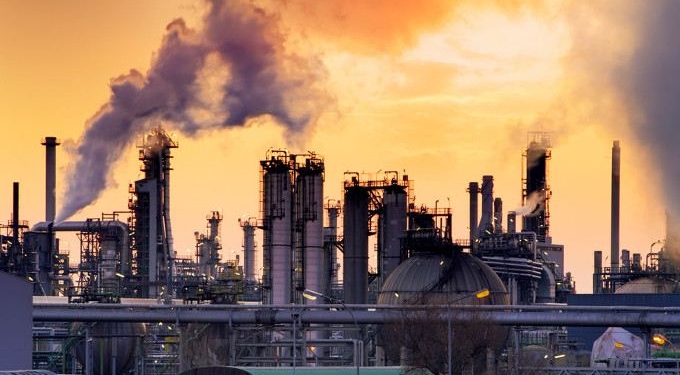
By Julia Conley | Common Dreams
After two Democratic candidates in this week's presidential primary debates called for an end to government subsidies for fossil fuel companies, a new study revealed that even reducing those subsidies—as the world's wealthiest countries pledged to a decade ago—would kick-start “clean energy revolution.”
As The Guardian reported Thursday, the International Institute for Sustainable Development (IISD) released a report showing that if just 10 to 30 percent of the annual coal, oil, and gas subsidies were given to the renewable energy sector, the world could see a prompt reduction of fossil fuel emissions by nearly 20 percent.
“Public money is far better spent delivering the clean energy transition than propping up the fossil fuel industry. All countries should be looking to identify where swaps can kick-start their clean energy transitions.”
—Richard Bridle, IISDFossil fuel companies receive more than $370 billion per year in subsidies from world governments. The International Monetary Fund (IMF) calculates the amount given to extractive industries as $5.2 trillion, including the cost of the yearly damage done by fossil fuel companies. In the U.S. in 2015, the government spent 10 times more on the fossil fuel industry than it did on education.
Renewable energy companies providing solar, wind, and hydropower electricity are given only $100 billion yearly.
“Public money is far better spent delivering the clean energy transition than propping up the fossil fuel industry,” said Richard Bridle, senior policy adviser for IISD, in a statement. “All countries should be looking to identify where swaps can kick-start their clean energy transitions.”
In 2009, countries at the G20 summit agreed to phase out fossil fuel subsidies, but 10 years later, the economies have made little progress.
In the Democratic primary debates on Tuesday and Wednesday, both Sen. Bernie Sanders (I-Vt.) and former Vice President Joe Biden called for an end to the subsidies.
On social media on Thursday, the global climate action group 350.org highlighted recent comments from United Nations Secretary-General Antonio Guterres, who said in May, “What we are doing is using taxpayers' money—which means our money—to boost hurricanes, to spread droughts, to melt glaciers, to bleach corals. In one word: to destroy the world.”
Yup. What @UN Secretary General said about fossil fuel subsidies! Even just 10% of fossil fuel subsidies could fund the rapid and just renewable energy revolution the world needs. What are we waiting for? >> https://t.co/COvSY8qFnh #GreenNewDeal #climatestrike pic.twitter.com/HndnpOqxYB
— 350 dot org (@350) August 1, 2019
Contrary to the claims of President Donald Trump and the Republican Party in the U.S. and other leaders aligned with fossil fuel industries abroad, even with less financial assistance from governments, the renewable energy sector is growing.
Renewable energy sources are expected to provide nearly 30 percent of electricity by 2023, up from 24 percent in 2017, according to the International Energy Agency (IEA).
Meanwhile, the U.S. Energy Information Administration found that natural gas and coal power fell by 7.7 and 2.5 percent, respectively, between 2016 and 2017, while solar, wind, and hydropower saw gradual growth.
Swapping subsidies for extractive industries for assistance that would go to sustainable energy companies would quickly “tip the balance,” Bridle told The Guardian.
The switch would turn renewables “from a technology that is slowly growing to one that is instantly the most viable and can replace really large amounts of generation. It goes from being marginal to an absolute no-brainer.”
The IMF estimates that completely ending fossil fuel subsidies would cut global emissions by a quarter while reducing the number of premature deaths due to pollution by half.
“The reform of subsidies alone is not enough to meet global emissions targets, but it is a good first step,” Bridle said. “Ultimately, the cost of each energy source should reflect its social and environmental impacts. That means increasing taxes on dirty energy and redirecting subsidies to align with government priorities.”
Our work is licensed under a Creative Commons Attribution-Share Alike 3.0 License. Feel free to republish and share widely.















